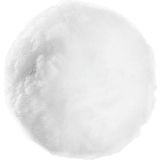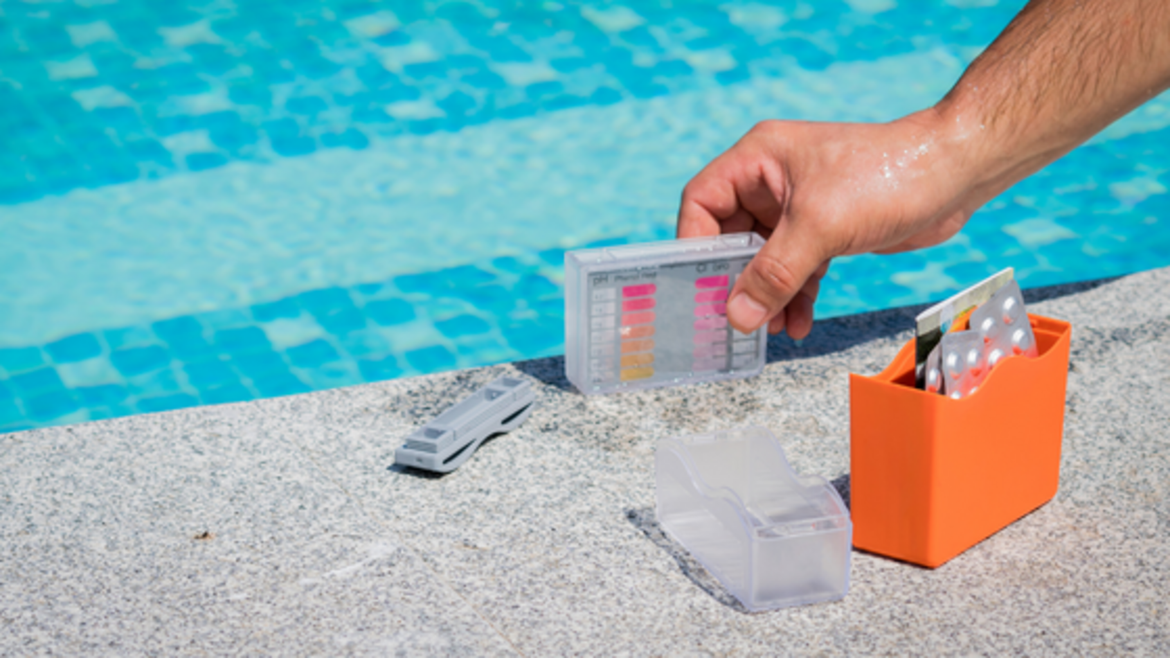Pool Water Care: Everything You Need to Know!
Pool Water Care: 4 Steps to Lasting Success
Pool water needs regular maintenance to stay crystal clear and hygienic. This includes various measures that should be coordinated with one another to achieve maximum success.
Step 1: The filtration
If using a sand filter system or cartridge filter system, it is important to free your pool water from as much visible dirt as possible first. This ensures that your pool looks nicer and more inviting. It also removes debris from that water that could be a breeding ground and food source for germs and algae.
Optimise your filtration results
Here are few basic rules to optimise the filtration process of your pool water:
- let your filter system run long enough. At water temperatures of 25°C and more, no matter how powerful your pool pump is, you should let it run for 7 to 8 hours.
- run the filter system preferably during the day because it is warmer during the day than at night and microorganisms tend to multiply exponentially at warm temperatures. Moving water makes it difficult for them to multiply.
- if you are using sand or filter glass as your filtration medium use flocculants to increase the efficiency of the filtration process
- we have more helpful tips about filtration in our article "Which sand filter is the right one?"
Step 2: Pool water care with skimmer, vacuum cleaner and net
Your filter system will usually only be able to filter suspended particles. Dirt that sinks to the bottom or floats on the water surface is normally out of their reach.
Skimmer and net to get rid of floating debris
Debris such as insects and leaves do not usually sink and are comparitively large in size. They serve as a rich food source and breeding ground for microorganisms such as algae, bacteria, protozoa and fungi. Removing these will help maintain the quality of your pool water. A skimmer does this automatically - but you need to empty the skimmer basket regularly. As long as the skimmer basket is not emptied, these particles will negatively impact your pool water quality. You can also use a pool net from time to time to fish out large particles from your pool quickly and remove them permanently.
Pool vacuums and pool robots for the pool floor
Some dirt particles sink to the bottom and remain there. If you don't tackle this regularly, more and more dirt will accumulate. This is, needless to say, the perfect breeding ground for microorganisms. Therefore use a pool vacuum to suck up dirt from the floor of your pool. You can use a pool robot or a manual hand vacuum cleaner. Practical tip: You can improve the effectiveness of most pool vacuums with filter balls. Note that filter balls limit the volume of your vacuum - use them only if you are sure that your filter chamber or filter bag will not become clogged.
Step 3: Pool water care with disinfection measures
You've already accomplished a lot. The next steps are about making sure that your water stays hygienic and safe. The previous steps were an important prerequisite for this!
What have steps 1 and 2 achieved?
Steps 1 and 2 ensure that you have crystal water in your pool that invites you to get in and cool off. You have also created conditions that make it difficult for microorganisms such as bacteria, fungi and algae to multiply by permanently removing dirt and debris from the your pool and therefore a rich source of food. Your water will be much more stable thanks to these steps and you will have to use fewer pool chemicals - fantastic!
Get rid of microorganisms and prevent unpleasant water problems
Even if you have ensured that there are as few solid particles as possible in your pool, it will never be 100% free of dirt and microorganisms. You can get rid of the remaining organic matter and microorganisms by using chlorine or - more gently - a salt water system.
Without the right pH value, pool water care will not be successful
In addition to the steps you've implemented so far, you will also need to ensure that the pH value of your pool water stays between 7.0 and 7.4. This makes your disinfection measures effective and prevent problems caused by pH values outside this range. These include odour, reduced effectiveness of flocculants, irritation of the mucous membranes and skin, limescale deposits (which are difficult to remove). Often, the importance of the pH value is underestimated leading to many avoidable problems. In our opinion, correct pH adjustment is the single most important step in maintaining your pool water. Use pH-Minus or pH-Plus to adjust the pH value.
Important: Measure your water parameters regularly!
Normally pool water will remain stable for several days. But at water temperatures above 25°C, water quality can collapse very quickly. The more diligently you follow our tips, the longer you can prevent this from happening. Following the steps outlined here will help you avoid 99.9% of the problems. If you are a first timer, measure your water values every day to ensure that your pool water care regimen is effective. You will need to measure at least the following:
- free chlorine (ideally: 0.3-0.6mg per litre)
- pH value (ideally between 7.0 and 7.4)
Optional paramaters to measure:
- combined chlorine (ideally: less than 0.2 mg per litre)
- cyanuric acid (ideally 8 - 25 ppm)
Sometimes mistakes can occur when determing water values with pool testing devices. Refer to the intructions for use on the product description pages where we point out common problems and explain the correct usage.
Chlorine or salt water disinfection for optimal pool water care
Provided your pH is properly adjusted (practical info: it tends to rise in most pools, especially after the first fill), you can use chlorine or a salt water system to render microorganisms harmless. Chlorine and sodium hypochlorite in your saltwater system dissolve suspended organic matter and reduce the level of unwanted free chlorine (free chlorine is the culprit that causes irritation, allergic reactions and gives off that unpleasant chlorine odour). If you don't have much experience with using chlorine, follow the manufacturer's instructions and dosage amounts carefully.
Related products
-
 4.6 (116)
4.6 (116)Steinbach Filter Balls, 700 g
Bestseller- Large Filter Surface
- High Dirt Absorption Capacity
- Less Backwashing Processes
£22.00 (£31.43 / kg)Delivery by April 29
-
Great Britain: Free standard delivery from £99.90
-
Free
returns -
We operate in a
climate-conscious manner. Secure payments
with SSL encryption technology


